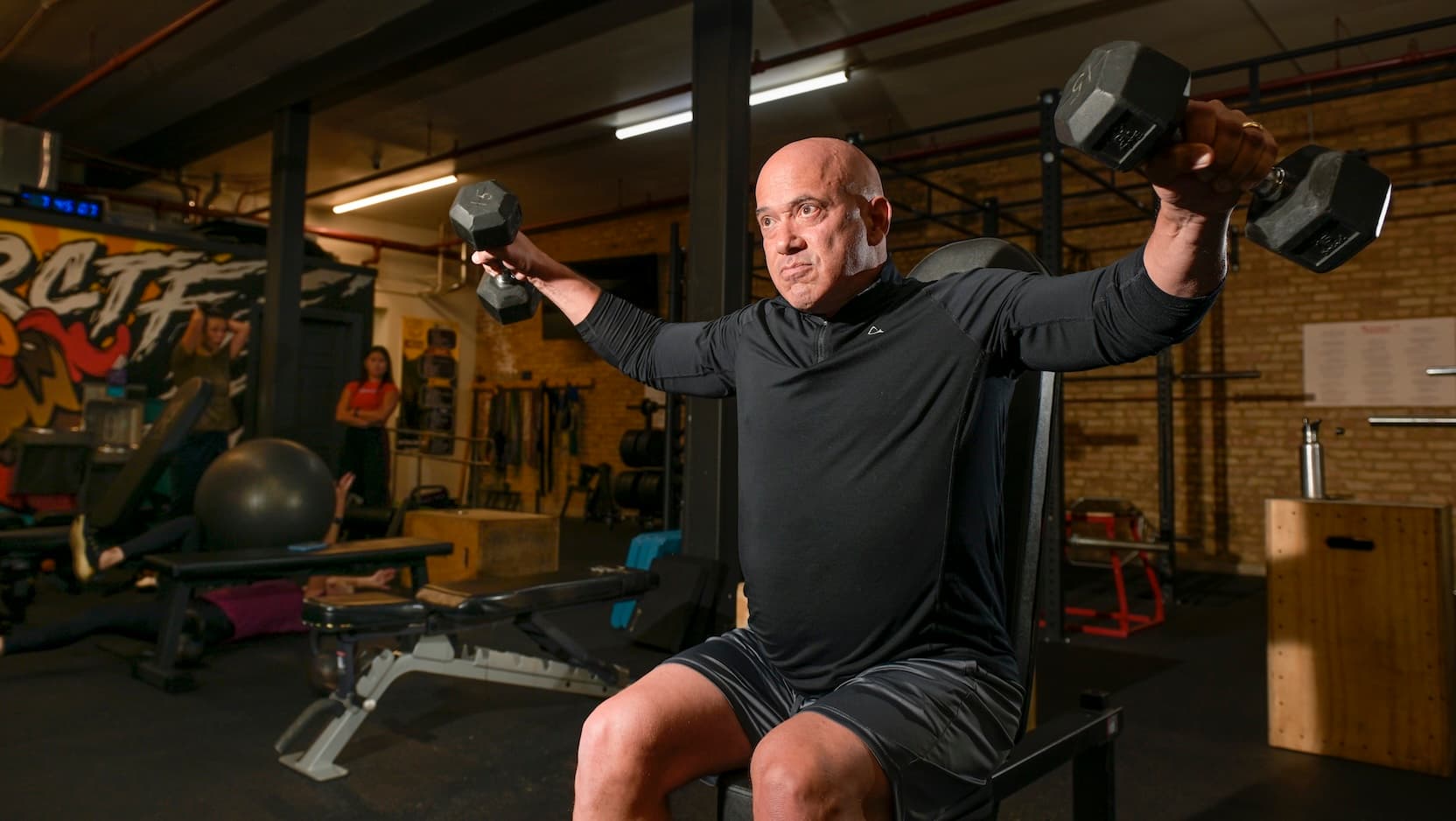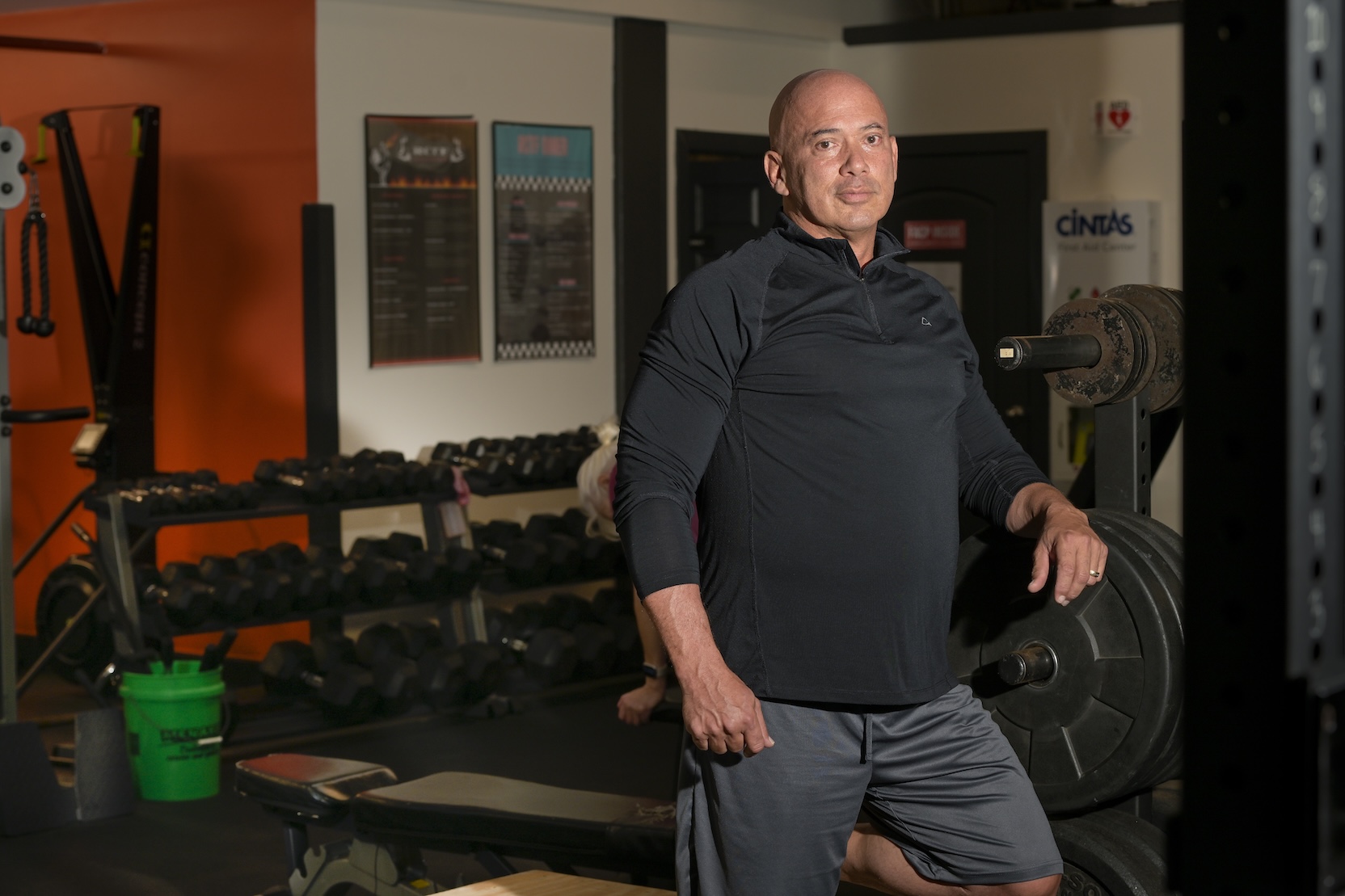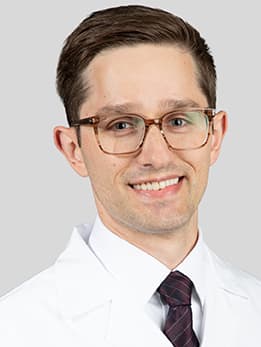After robotic hernia repair surgery, patient resumes workouts, weightlifting

Anthony Amunategui is no stranger to hernias. He’d already had three operations for hernias located in his belly button and groin when he noticed a lump last January on his lower right abdomen.
After having his appendix removed last September, a hernia the length of a business card appeared directly above an infected incision.
“It was more awkward than painful,” said Amunategui, 57, of Oak Park. “It had a very bulging feeling and I knew what the issue was as soon as it happened.”
Hernias occur when an organ or tissue pushes through a weak spot in the muscle or tissue holding it in place.
Most hernias occur in the abdomen or groin areas, and they can increase in size when a person puts more pressure in their abdomen by doing things like coughing, heavy lifting or straining when using the toilet. Some hernias can be safely observed without surgery, if your doctor approves.
There are three reasons why a hernia should be repaired: if it's causing pain or obstruction; if it's growing and interfering with mobility; or if it's at risk of causing additional health complications.
Treatment is surgical: Doctors will push the herniated tissue back into place and usually strengthen the problematic area with medical mesh.
Hernia repair referral: 'I got the guy'
Amunategui scaled back his near-daily workouts and scheduled hernia repair surgery with a physician at the Chicago hospital where he’d had his emergency appendix removal.
But he didn’t follow through.
“It was a minimally invasive surgery, but the way the doctor articulated it, it wasn’t something that brought me lots of confidence,” Amunategui said.
In search of a second opinion, he reached out to a men’s personal development network. One member, a doctor, tapped his connections for a hernia surgeon.
“He was like, 'Look, I got the guy — this is the guy that fixes everybody else’s problems,'" Amunategui said.
It was University of Chicago Medicine gastrointestinal surgeon Alex Lois, MD.
Treatment for incisional hernia
UChicago Medicine offers comprehensive hernia treatments, including open and minimally-invasive approaches to treat complex hernias. Its multidisciplinary care approach to treating hernias involves surgeons, dieticians, weight-loss specialists and plastic surgeons.
Amunategui had an unusual hernia in a layer of tough tissue called the Spigelian fascia. It was even more complex because of scarring from his previous hernia surgeries.
“It's been referred to as the ‘hidden epidemic’ of incisional hernias — anywhere from 10% to 25% of patients who have any form of open incision in the abdomen will develop a hernia afterward,” Lois said.
“The presence of those hernias and the mesh that was already in place affected our decision-making about how to best fix the patient’s latest one.”

Weightlifting after robotic hernia surgery
Lois proposed a robotic-assisted transabdominal pre-peritoneal hernia repair. It would involve making several small incisions to access Amunategui’s abdomen and guide his herniated intestine back into place.
Lois would carefully separate the layers of abdominal tissue to place a strong mesh over the hole through which Amunategui’s intestine had slipped. He would then pull the peritoneum — the thin membrane lining the abdomen — over the mesh and ensure the remaining layers of connective, muscle, fat and skin tissue were securely closed on top of it.
“The way he articulated the procedure and his idea of what to do after spending time with me and going over all of my information made all the difference,” Amunategui said. “Immediately, my confidence changed.”
Amunategui had successful outpatient surgery in April and began a regimen of daily morning walks a few days later.
“The hardest part was just taking it easy,” said Amunategui, who runs a construction management and general contracting company.
By June, he was back at the gym doing his regular weight-lifting routine. He says he’s healing well and life is back to normal.
“I feel like I was lucky to find Dr. Lois as a doctor. I'm really blessed,” Amunategui said. “The work he did is just phenomenal.”
Hernia Care
At UChicago Medicine, our team is nationally recognized for advanced hernia surgery and personalized care.
Learn more
Alex Lois, MD, MS
Alex Lois, MD, MS, is an advanced minimally invasive gastrointestinal surgeon who specializes in esophageal and gastric disorders.
Learn more about Dr. Lois